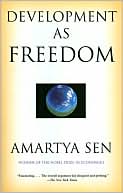Category Books
- Fiction Books & Literature
- Graphic Novels
- Horror
- Mystery & Crime
- Poetry
- Romance Books
- Science Fiction & Fantasy
- Thrillers
- Westerns
- Ages 0-2
- Ages 3-5
- Ages 6-8
- Ages 9-12
- Teens
- Children's Books
- African Americans
- Antiques & Collectibles
- Art, Architecture & Photography
- Bibles & Bible Studies
- Biography
- Business Books
- Christianity
- Computer Books & Technology Books
- Cookbooks, Food & Wine
- Crafts & Hobbies Books
- Education & Teaching
- Engineering
- Entertainment
- Foreign Languages
- Game Books
- Gay & Lesbian
- Health Books, Diet & Fitness Books
- History
- Home & Garden
- Humor Books
- Judaism & Judaica
- Law
- Medical Books
- New Age & Spirituality
- Nonfiction
- Parenting & Family
- Pets
- Philosophy
- Political Books & Current Events Books
- Psychology & Psychotherapy
- Reference
- Religion Books
- Science & Nature
- Self Improvement
- Sex & Relationships
- Social Sciences
- Sports & Adventure
- Study Guides & Test Prep
- Travel
- True Crime
- Weddings
- Women's Studies
Development as Freedom » (First Anchor Books Edition)

Authors: Amartya Sen
ISBN-13: 9780385720274, ISBN-10: 0385720270
Format: Paperback
Publisher: Knopf Doubleday Publishing Group
Date Published: August 2000
Edition: First Anchor Books Edition
Author Biography: Amartya Sen
Amarty Sen is Master of Trinity College, Cambridge. In 1988, he was awarded the Nobel Prize in Economic Science.
Book Synopsis
By the winner of the 1988 Nobel Prize in Economics, an essential and paradigm-altering framework for understanding economic development—for both rich and poor—in the twenty-first century.
Freedom, Sen argues, is both the end and most efficient means of sustaining economic life and the key to securing the general welfare of the world's entire population. Releasing the idea of individual freedom from association with any particular historical, intellectual, political, or religious tradition, Sen clearly demonstrates its current applicability and possibilities. In the new global economy, where, despite unprecedented increases in overall opulence, the contemporary world denies elementary freedoms to vast numbers—perhaps even the majority of people—he concludes, it is still possible to practically and optimistically restain a sense of social accountability. Development as Freedom is essential reading.
Publishers Weekly
When Sen, an Indian-born Cambridge economist, won the 1998 Nobel Prize for Economic Science, he was praised by the Nobel Committee for bringing an "ethical dimension" to a field recently dominated by technical specialists. Sen here argues that open dialogue, civil freedoms and political liberties are prerequisites for sustainable development. He tests his theory with examples ranging from the former Soviet bloc to Africa, but he puts special emphasis on China and India. How does one explain the recent gulf in economic progress between authoritarian yet fast-growing China and democratic, economically laggard India? For Sen, the answer is clear: India, with its massive neglect of public education, basic health care and literacy, was poorly prepared for a widely shared economic expansion; China, on the other hand, having made substantial advances in those areas, was able to capitalize on its market reforms. Yet Sen demolishes the notion that a specific set of "Asian values" exists that might provide a justification for authoritarian regimes. He observes that China's coercive system has contributed to massive famine and that Beijing's compulsory birth control policy--only one child per family--has led to fatal neglect of female children. Though not always easy reading for the layperson, Sen's book is an admirable and persuasive effort to define development not in terms of GDP but in terms of "the real freedoms that people enjoy." (Sept.) Copyright 1999 Cahners Business Information.
Table of Contents
| List of Illustrations | ||
| Preface | ||
| Acknowledgments | ||
| Introduction: Development as Freedom | 3 | |
| 1 | The Perspective of Freedom | 13 |
| 2 | The Ends and the Means of Development | 35 |
| 3 | Freedom and the Foundations of Justice | 54 |
| 4 | Poverty as Capability Deprivation | 87 |
| 5 | Markets, State and Social Opportunity | 111 |
| 6 | The Importance of Democracy | 146 |
| 7 | Famines and Other Crises | 160 |
| 8 | Women's Agency and Social Change | 189 |
| 9 | Population, Food and Freedom | 204 |
| 10 | Culture and Human Rights | 227 |
| 11 | Social Choice and Individual Behavior | 249 |
| 12 | Individual Freedom as a Social Commitment | 282 |
| Notes | 299 | |
| Index by Name | 353 | |
| Index by Subject | 361 |
Subjects
 Economics
Economics  Economic Development
Economic DevelopmentNonfiction
 All Nonfiction
All Nonfiction  Economics & Politics
Economics & PoliticsPolitical Books & Current Events Books
 Economics & Politics
Economics & Politics  Economic Development
Economic DevelopmentPolitical Books & Current Events Books
 All Politics
All Politics  Economics & Politics
Economics & PoliticsNonfiction
 Politics & Current Affairs
Politics & Current Affairs  Economics & Politics
Economics & PoliticsNonfiction
 Politics & Current Affairs
Politics & Current Affairs  All Politics
All Politics
